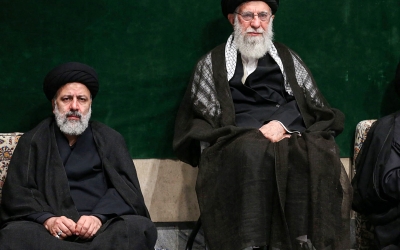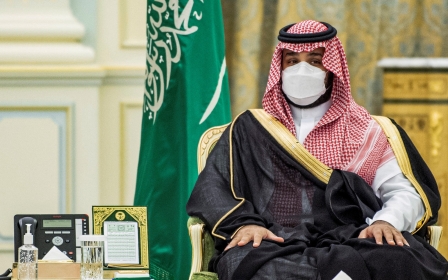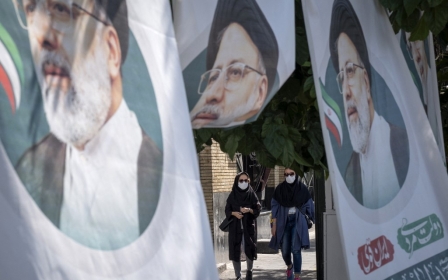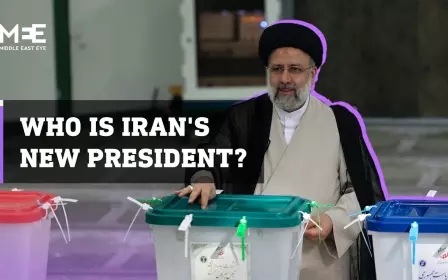Iran's Raisi says 'no obstacles' to restoring ties with Saudi Arabia
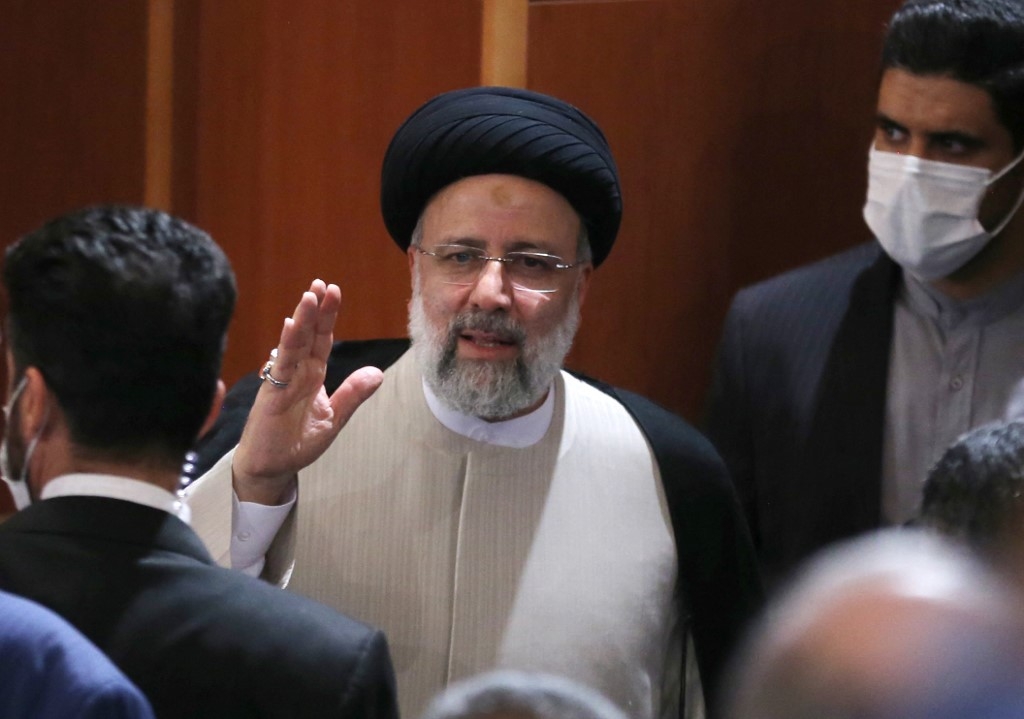
Iran's President-elect Ebrahim Raisi said there are "no obstacles" standing in the way of restoring ties with Saudi Arabia, indicating his willingness to mend a fractured relationship with its regional rival.
Speaking at a news conference on Monday - his first since winning Iran's presidential elections - Raisi said that his administration would be open to restoring ties with Riyadh and opening diplomatic offices.
New MEE newsletter: Jerusalem Dispatch
Sign up to get the latest insights and analysis on Israel-Palestine, alongside Turkey Unpacked and other MEE newsletters
"There are no obstacles from Iran's side to reopening embassies… there are no obstacles to ties with Saudi Arabia," he said.
Tehran and Riyadh fell out five years ago after Iranian protesters attacked Saudi diplomatic missions following the kingdom's execution of Sheikh Nimr al-Nimr, an outspoken campaigner for Shia rights.
Over the last few months, diplomats from the two countries are reported to have held secret talks in an effort to defuse tensions.
In April, Saudi Crown Prince Mohammed bin Salman - sometimes known as MBS - said he hoped to establish "a good and special relationship with Iran", in remarks that were said to have come after one of the secret meetings in Iraq.
"We want Iran to grow... and to push the region and the world towards prosperity," MBS said at the time.
While the crown prince did not confirm negotiations had taken place between Riyadh and Tehran, his comments did mark a major change in tone, moving away from its US-supported accusations that the Islamic Republic had fuelled regional insecurity.
Iran nuclear talks
During his term, former US President Donald Trump had encouraged the widening of the rift between Saudi Arabia and Iran, as his administration pursued a "maximum pressure" campaign against Tehran.
Trump pulled the US out of the nuclear deal with Iran in 2018 and levied a series of crippling sanctions. While current US President Joe Biden has vowed to re-enter a nuclear deal with Iran and lift some sanctions, an agreement between Iran and world powers has yet to be solidified.
On Monday, Raisi said his administration, which takes over in August, is open to nuclear negotiation, but would not agree to sit down with Biden directly. Biden had not invited his current or new Iranian counterpart to sit down for direct talks.
'We will not allow [nuclear] negotiations to be for negotiations' sake'
- Ebrahim Raisi, Iran's president-elect
"Any negotiations that guarantee national interests will certainly be supported, but… we will not allow negotiations to be for negotiations’ sake," Raisi said of the nuclear talks.
"Any meeting must produce a result… for the Iranian nation," he added.
Raisi, 60, won Friday’s elections with 62 percent of the vote, which saw a 48.8 percent voter turnout.
An ultra-conservative cleric who heads Iran's judiciary, Raisi will replace moderate President Hassan Rouhani, who led Iran into the original 2015 nuclear deal.
The nuclear deal, signed by the US, Britain, China, France, Germany and Russia, saw Iran accept curbs on its nuclear capabilities in return for an easing of US sanctions.
On Sunday, EU negotiator Enrique Mora said that those involved in the new nuclear talks were "closer" to coming to an official agreement, but that sticking points remained.
Middle East Eye delivers independent and unrivalled coverage and analysis of the Middle East, North Africa and beyond. To learn more about republishing this content and the associated fees, please fill out this form. More about MEE can be found here.


